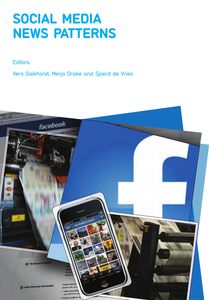In the Netherlands there is discussion about the best way to teach mathematics, especially in the case of primary school students. Being able to identify and understand pupils’ multiple problem solving strategies is one of the pillars of pedagogy. However, it is very demanding for teachers, since it requires to notice and analyze pupils’ mathematical thinking and to understanding their actions. The skill to notice and analyze a student’s mathematical thinking is usually not emphasized in Dutch primary school teacher training. It is important to find ways to help teacher-students to analyze student mathematical reasoning, and to learn to recognize the importance of such analysis. Sherin and van Es used the concept of video clubs to help teachers in US schools to notice and analyze their students’ mathematical thinking. In such video clubs, students jointly discuss their filmed lessons. This leads to the following research question:How can video clubs be used to teach students who are learning to become primary school teachers to analyze their pupils’ mathematical thinking and to learn to recognize the importance of such analysis?This paper describes a study that monitors a video club with four participants.
LINK
This short paper describes the first prototyping of a self-evaluation process of Curriculum Agility at a Faculty of Technology in Sweden. The process comprises guided, semi-structured, individual interviews at different organisational levels within the faculty, a joint narrative based on those interviews, prioritizing development strategies per level, and jointly mapping them on importance and implementation time. The self-evaluation is part of and based on the research on the principles of Curriculum Agility. The results show the interplay in timely curriculum change for futureproof engineering education between the teaching staff, the systems and the people who control the systems. The self-evaluation brings together the different perspectives and perceptions within the faculty and gives insight in how those affect he willingness towards and occurrence of curriculum development. This work in progress indicates how doing such a qualitative self-evaluation paves the road for transparent strategic dialogues on a holistic level about what to give attention and organize differently.
DOCUMENT

Bijdrage gepresenteerd op de Landelijke Werkconferentie Platform Taalgericht Vakonderwijs Berghotel, 6 december 2019
DOCUMENT

Wereldwijd onderzoek: Hoe gebruiken nieuwsmedia social media? Jongeren lezen geen krant meer, ze kijken op hun smartphone die ze altijd bij de hand hebben. Binnen het lectoraat social media en reputatiemanagement van NHL hogeschool te Leeuwarden heeft een groep internationale studenten in 12 landen onderzoek gedaan. Hierbij hebben ze meer dan 150 social media sites bestudeerd van nieuws media. De resultaten maken deel uit van een internationaal onderzoek van NHL Hogeschool en Haaga Helia University. De onderzoeksvraag was: Wat speelt zich af in de nieuwsmedia? Persbureaus kunnen het overzicht gebruiken om hun social media te optimaliseren. En voor ieder die journalistiek een warm hart toedraagt is het interessante informatie over de nieuwsmedia in een overgangssituatie (2nd edition)
DOCUMENT

This booklet reports on experiments carried out by Van Hall Larenstein University of Applied Sciences in the context of the VALUE project. It consists of three parts. The first two chapters describe some experiments carried out in the Dutch town of Amersfoort and the students’ input and approach. This is followed by an intermezzo on sources of inspiration outside the Netherlands and examples of the way urban green spaces and elements can provide an impulse for towns and cities. The final two chapters concern the way such a green strategy can be designed in Dutch urban settings. Chapter 5 discusses how local governments can use the added value provided by urban green spaces for new investments:value capturing. Chapter 6 focuses on a new type of planning: Planning by Surprise, which combines dreams and pragmatism. The photo essay at the centre of the book tells the story of the many sides of green spaces in towns and cities. Unintentional, intentional, planned, dreamed of, drawn,remembered, pictured, developed: Planning by Surprise.
DOCUMENT

On 13 June 2018, Susana Menéndez said farewell as member of the Executive Board of The Hague University of Applied Sciences. To mark that occasion, a symposium was held on leadership in the internationalization of higher education, of which Susana has been a champion over the past ten years.
DOCUMENT
